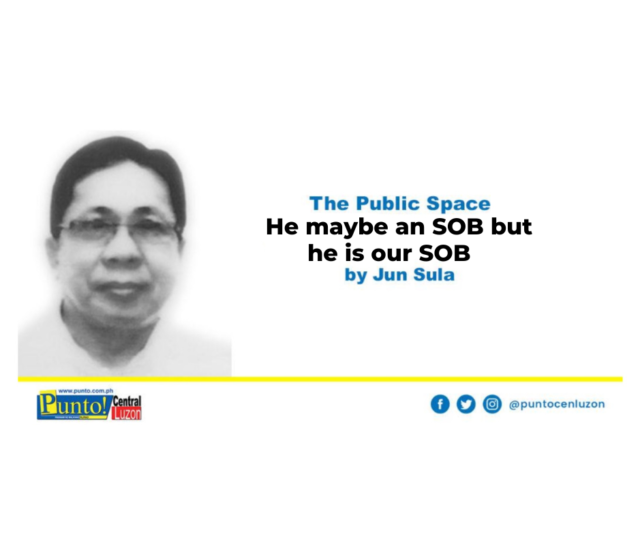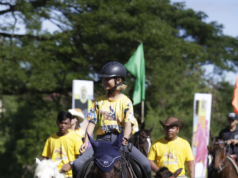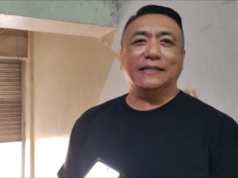There is a brand of patriotism, wrongly or rightly, publicly embraced, though privately is another matter, by many Filipinos led by no less than President Bongbong Marcos and many high officials in government not too far behind. If a survey is done , there probably would be more than there really are to express support to that kind of patriotism.
By simple definition, patriotism amounts to love of country. It ought to transcend presidents, personalities, politics and partisanship. Charles de Gaulle defined it as when your love for your own people comes first as opposed to nationalism when your hate for other people comes first. Real patriotism, on the other hand, is said to be the willingness to challenge the government when it is wrong.
Both definitions divide, as it were, though not equally, the Filipinos’ version of the term, separating the sincere from the vicious. This is where the rubber meets the road on the controversial issue of an international body investigating a former Philippine president primarily in connection with alleged crime against humanity committed in the course of prosecuting the so-called war on drugs.
The sheer numbers alone justify the investigation. By both official and unofficial estimates, the victims of the war was between 6,000 to 30,000 people who lost their lives. The investigation is conceivably part of a due process on those responsible for the alleged crime, the very process the victims were obviously denied of by their own government or state.
This is how the International Criminal Court has come to the scene, or to the aid of the victims or their relatives. Partly because it’s its job, partly because the Philippines is a signatory to the Rome Statute that is meant to stop such human rights abuses anywhere or everywhere. To stymie or stop the investigation, the Philippine government has resorted to three legal moves.
Firstly,it suddenly dropped out of the ICC during previous administration when the decision to probe the alleged crime came to a head. Secondly, at least two appeals have been made, claiming that the Philippines can comply with the two requirements for ICC not to investigate: willingness and ability to do the job by itself.
The third move was made after the ICC junked the Philippines two appeals because it failed to meet the ICC requirement of either ability or willingness to conduct an honest-to-goodness probe given the few cases it has covered for the longest time. PBBM has declared forthwith that the Philippines will now”disengage” from the ICC,a convoluted and confused declaration that sent the Solicitor General making more of damage control statement than clarifying the presidential statement. Maybe both.
Of course, PBBM has made his position clear and final at the outset: he will not throw his predecessor under the bus. Others have soon joined him, especially those from Congress, the Senate even threatening to hold its own investigation and inviting the ICC head to explain ICC’s side of the story. The ICC now becomes the focus of the investigation. The shoe will be on the other foot.
Those who oppose the ICC probe appeal to the country’s sovereignty and dignity. The sovereignty issue has been dismissed as a non-issue because the Philippines has surrendered a portion of it when it signed the treaty. The dignity issue is another thing, that even those who believed in the probe, concede that the ICC probe could potentially damage the country’s image.
This is an overriding concern that former Supreme Court Chief Justice Artemio Panganiban fear will happen if the ICC is allowed its pursuit of truth and justice. He broached the creation of an independent commission to do the job, instead, and keep the ICC away from looking into the Pandora’s box and expose the Philippines from unwanted shaming before the world. “Spare the Philippines from the shame and ignominy before the universe”, he pleaded.
The country’s honor is too high a price to pay for a former president’s alleged crime. Besides, the former president is willing to face the accusers in his turf where apparently he feels he will get a fair hearing and judgment, apart from being in control somewhat. What’s the big deal then, about letting an international court pick on a small country like the Philippines.? Hasn’t Sen. Imee Marcos decried the West’s selective criticism of countries violating human rights?
Marcos may have a good, perhaps even a noble, reason to invoke patriotism. But there are at least two more plausible motivations: politics and politics. He owes his predecessor a gift of history by allowing the late Marcos Sr. to be buried in a sacred ground meant for heroes – and yes, patriots. He owes his predecessor, via another former president, his historic comeback to Malacanang after more than 20 years in exile, no thanks to the EDSA People Power in 1986. He may not agree with that but the current vice president is Exhibit A.
And there is the future, or the past to think of , enough motivations to see to it that a future former president will not suffer the same fate of one in the aftermath of the 1986 peaceful revolution or another a worse one via a looming investigation, followed by a judgment, of an international court. It will be another first in Philippine history, and Panganiban fears both the truth and the consequence.
In another place, the United States, a former president has been indicted by a local,not federal nor international, court for violating a law. A scenario is envisioned where the former president will be arrested, handcuffed and photographed for all the world to see. Some say it will be ultimately good for democracy and the rule of law; others disagree and fear a violent , civil unrest, or worse..
Those may be the same things in mind for those who block the ICC from going ahead with its probe and those who want it to proceed for the sake of justice. Morality, Napoleon once said, lies on the heavier side of the artillery. Once upon a time, in another distant land, the crowd chose an SOB over a Savior, and truth became irrelevant to those who thought power and politics were more important. He was definitely an SOB but he was their SOB.





